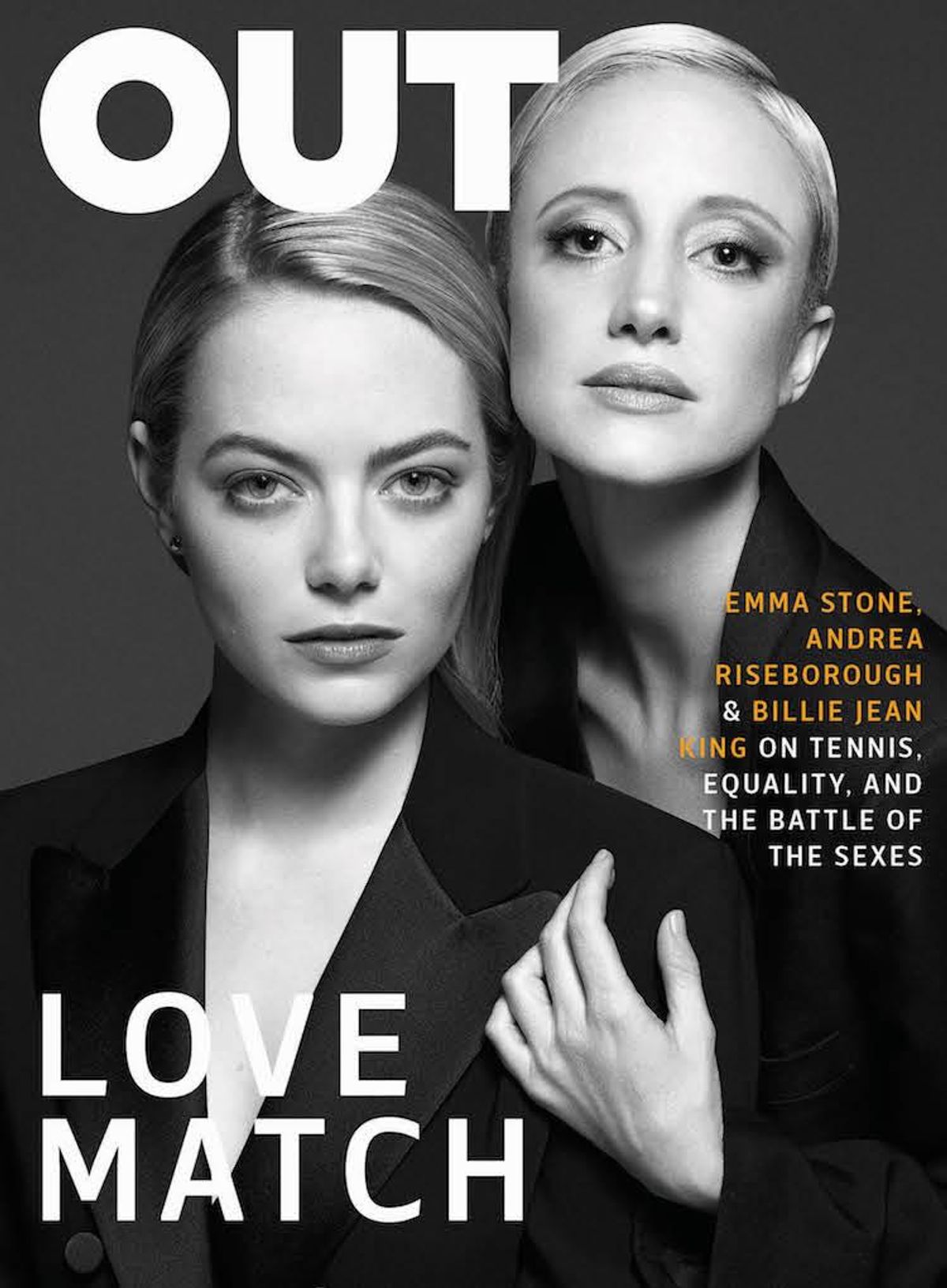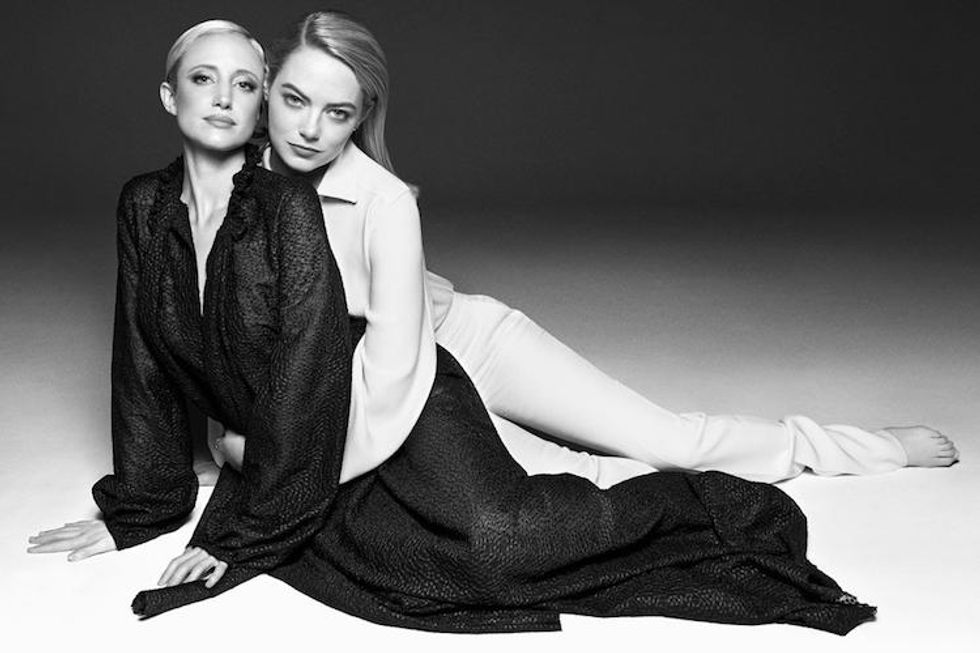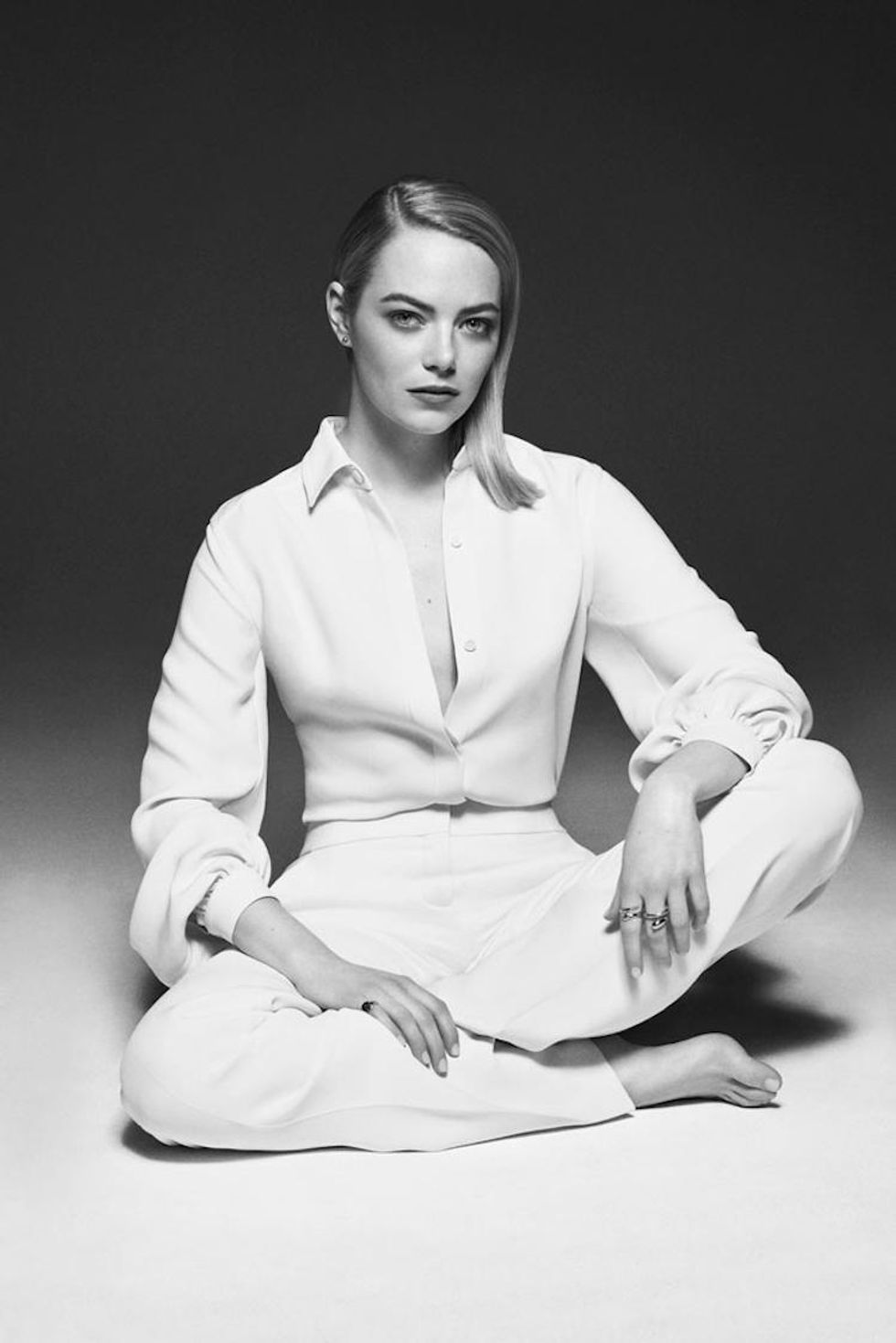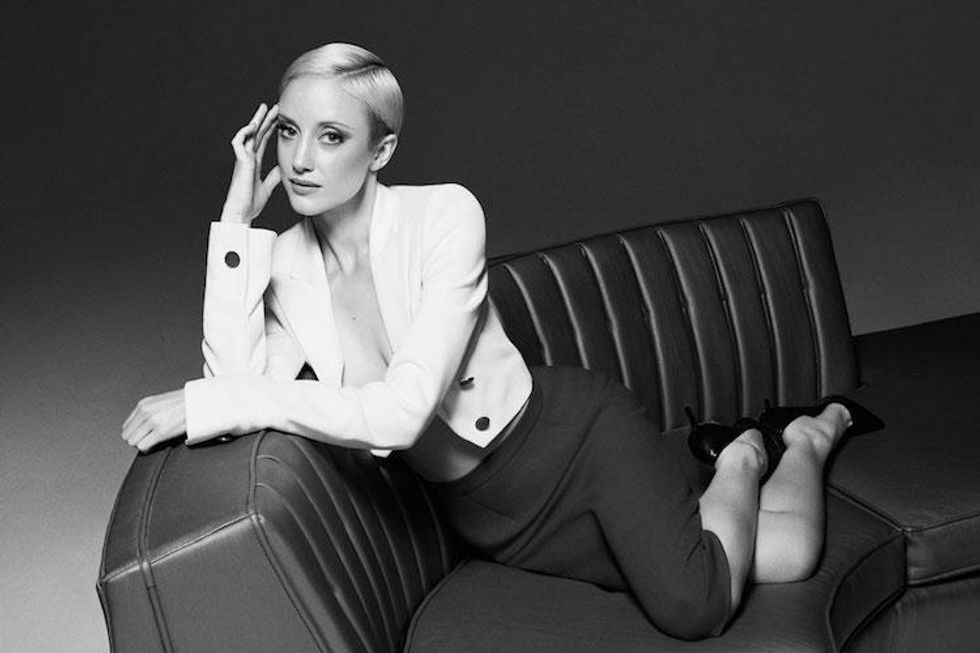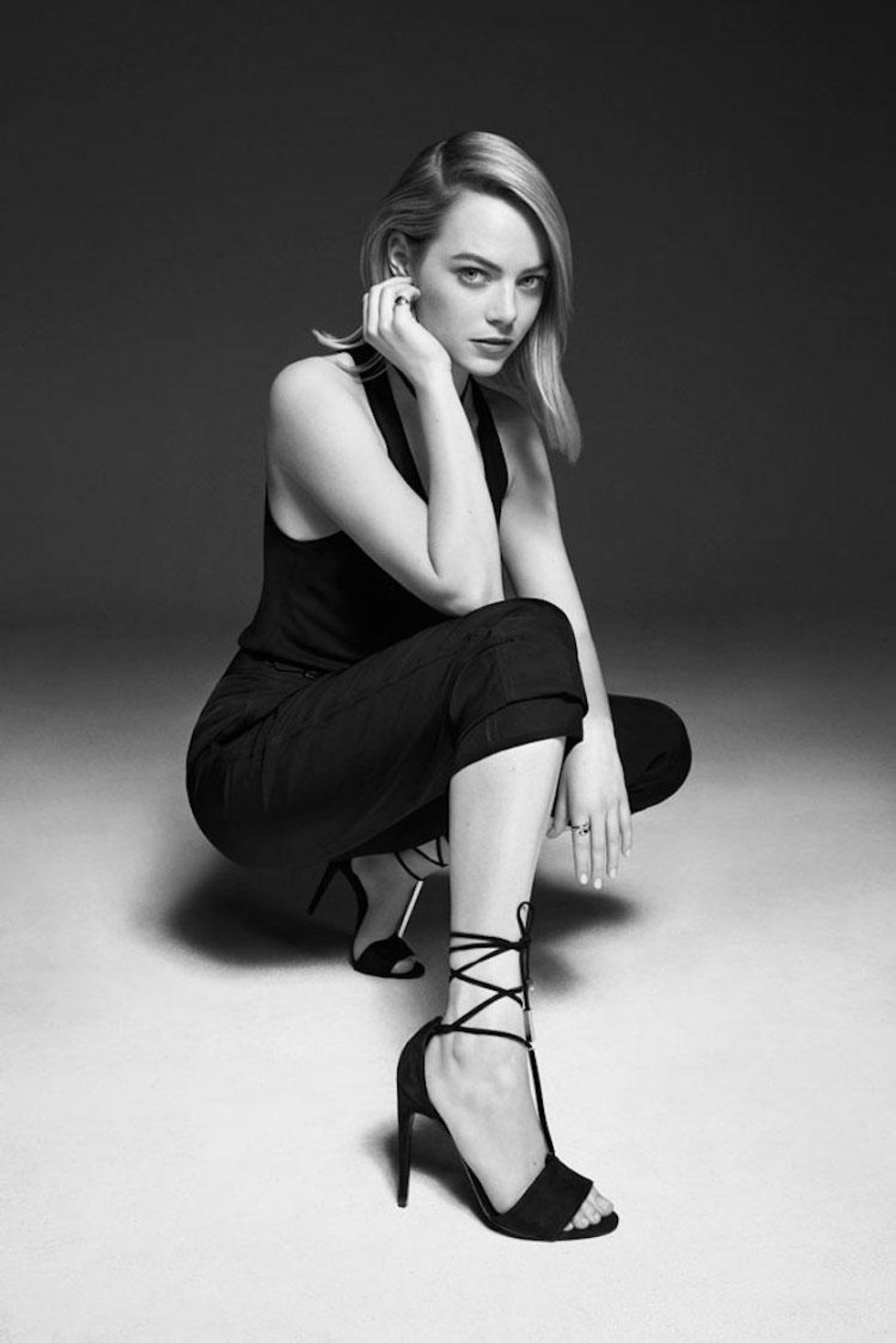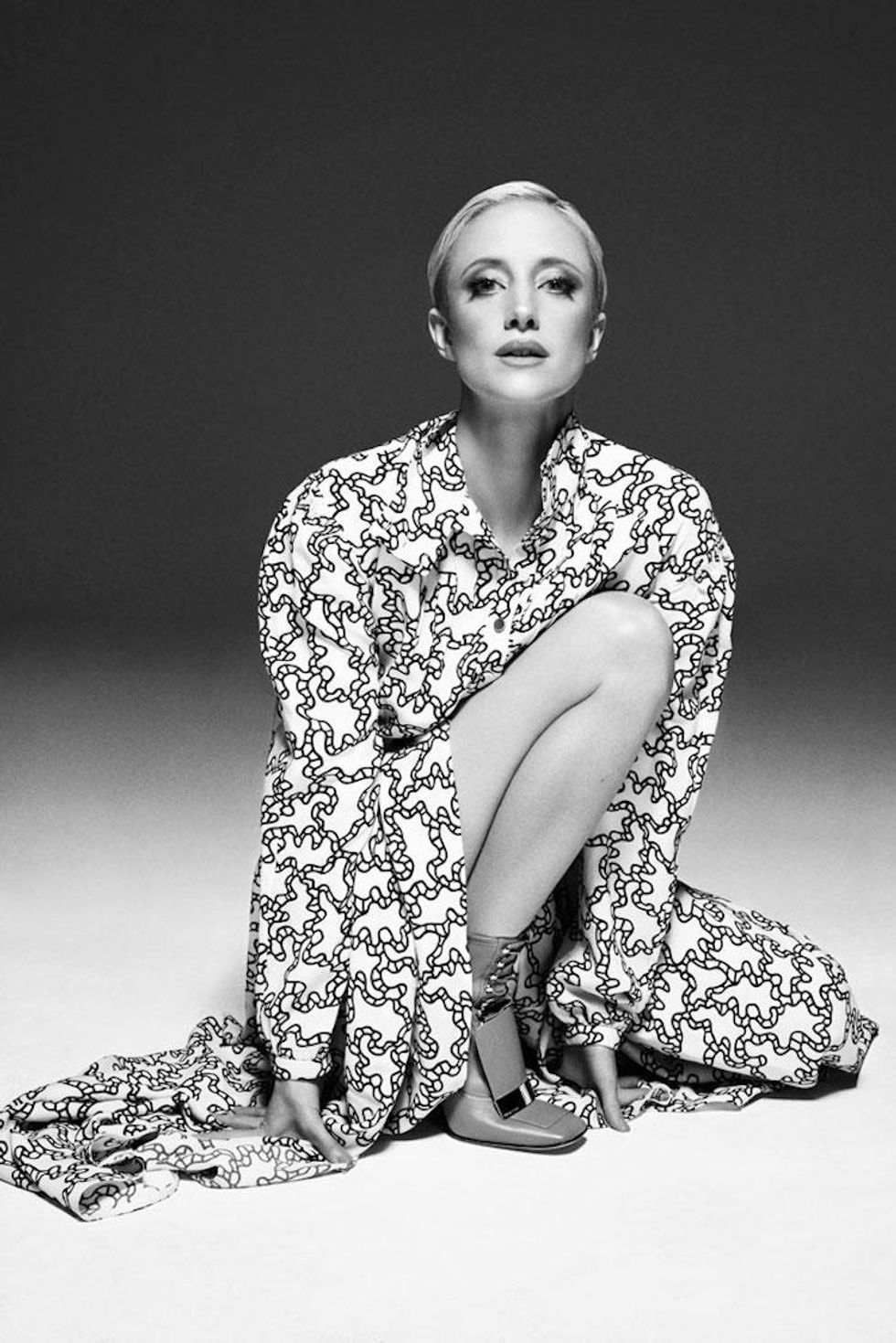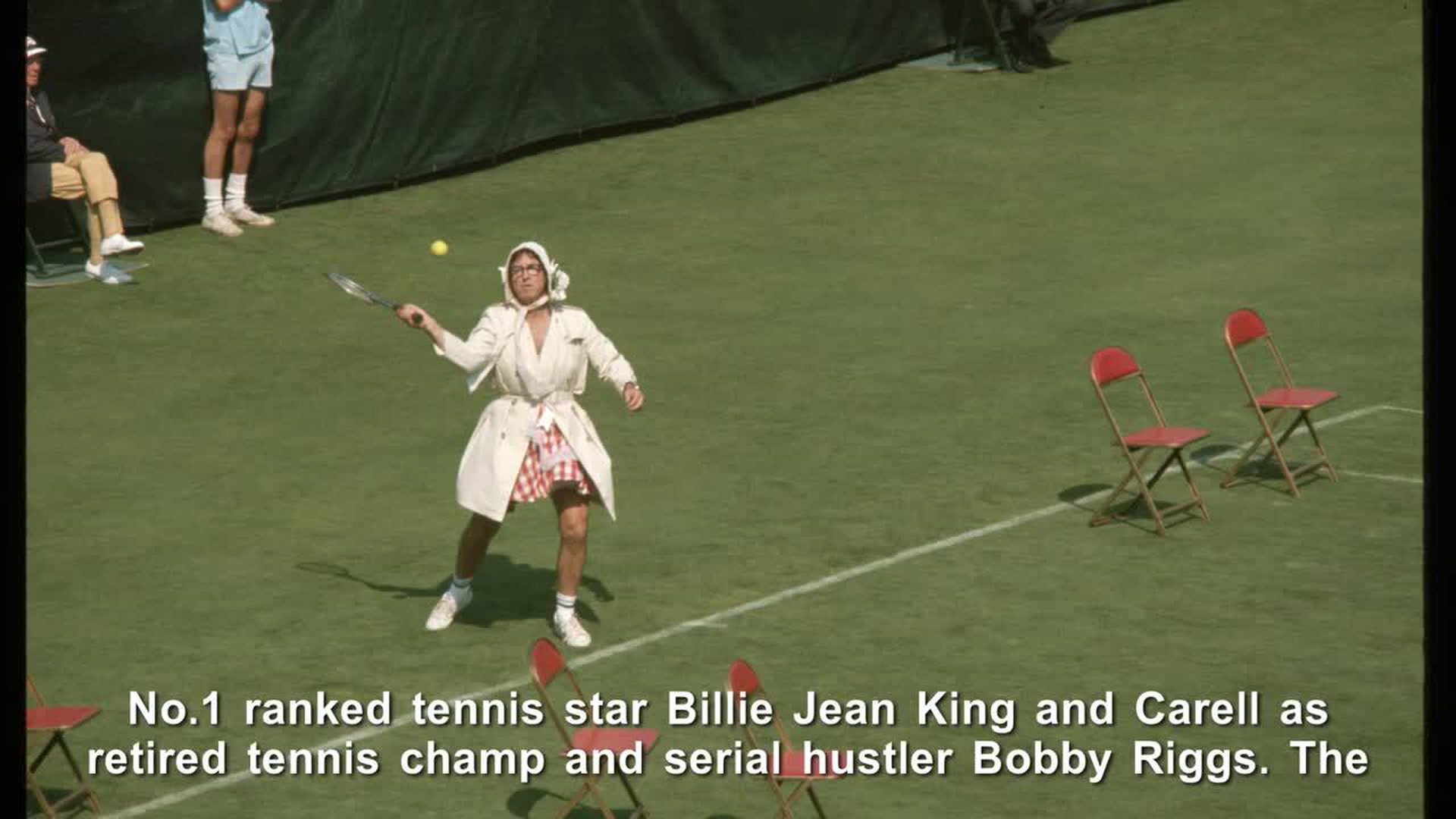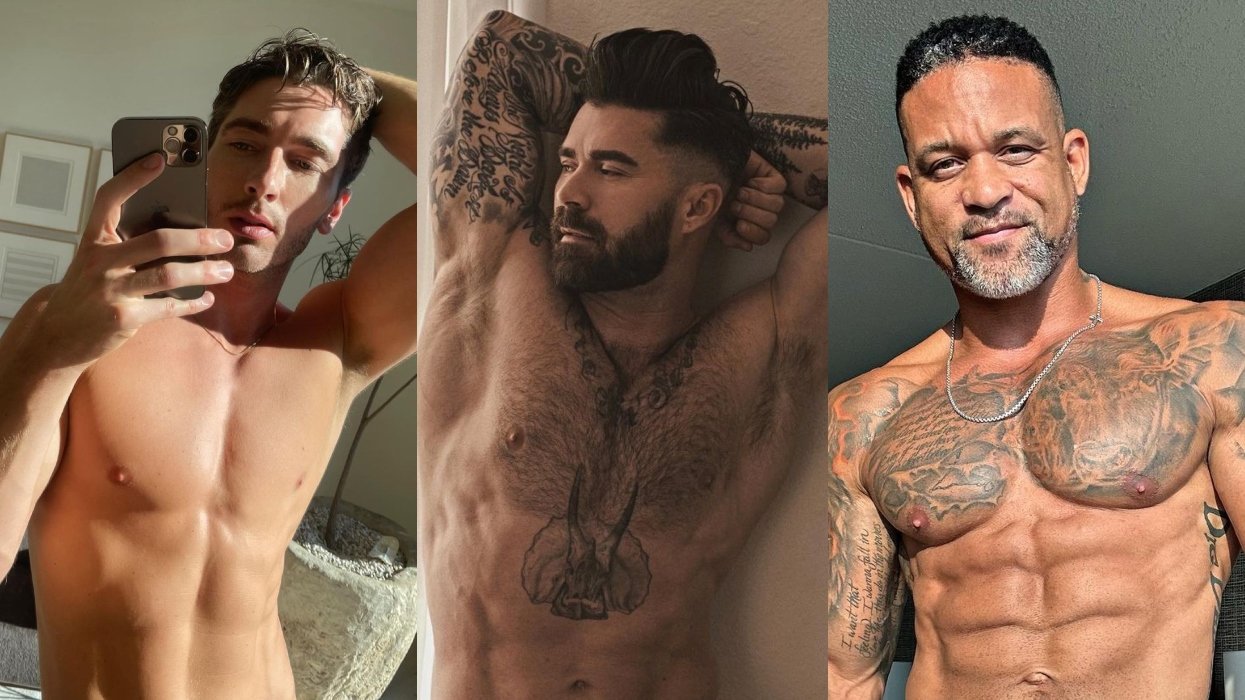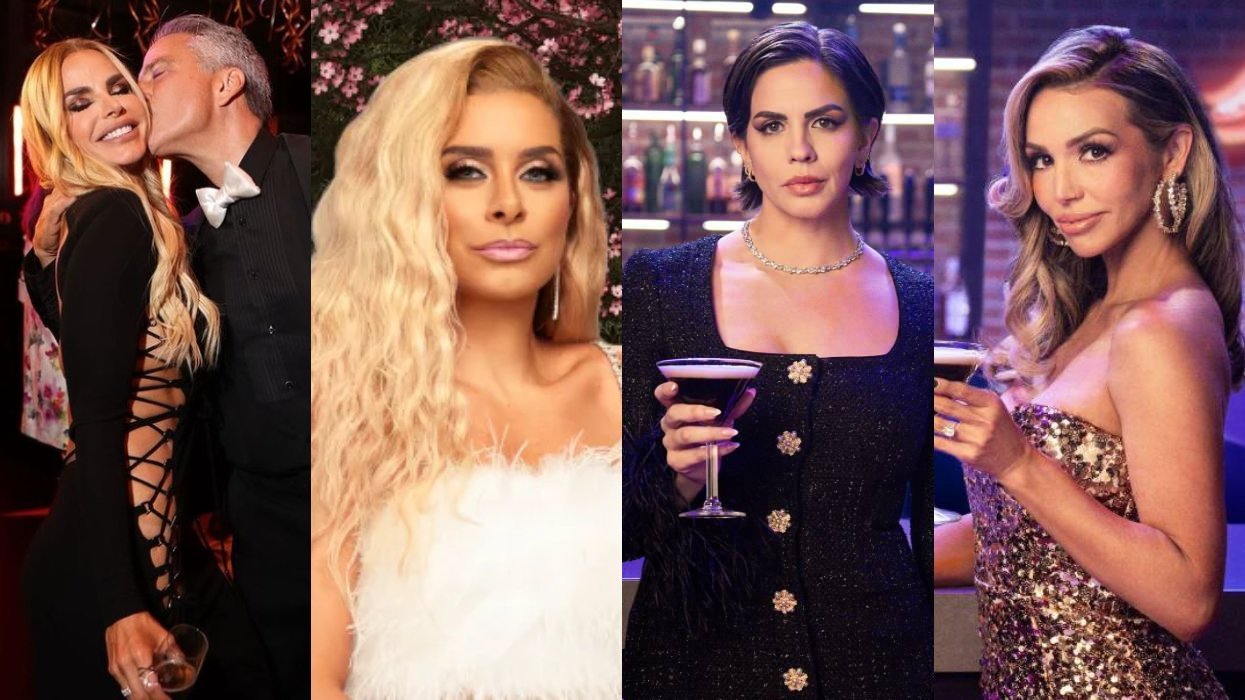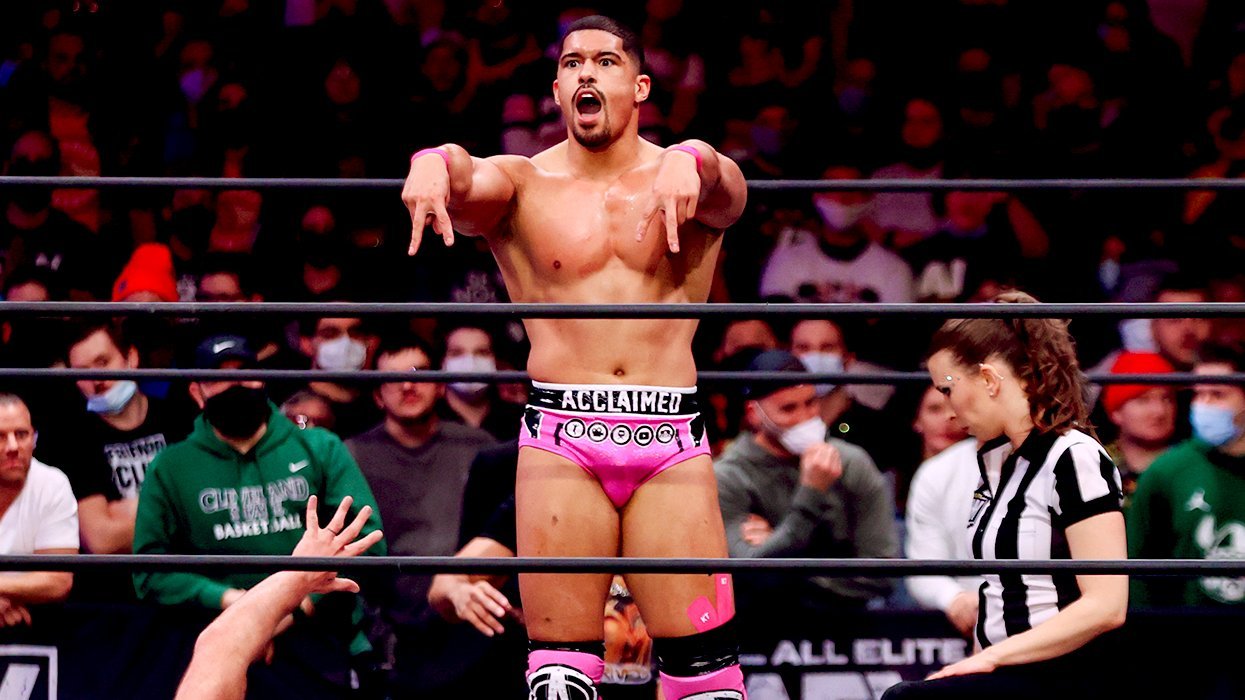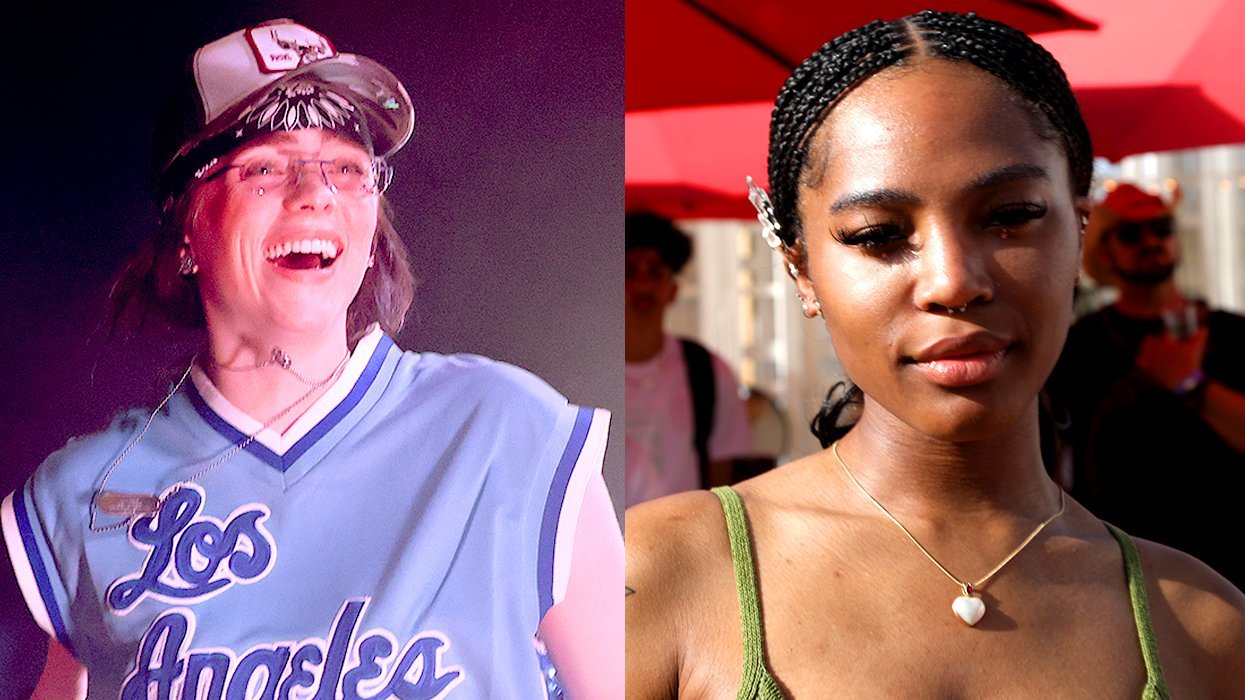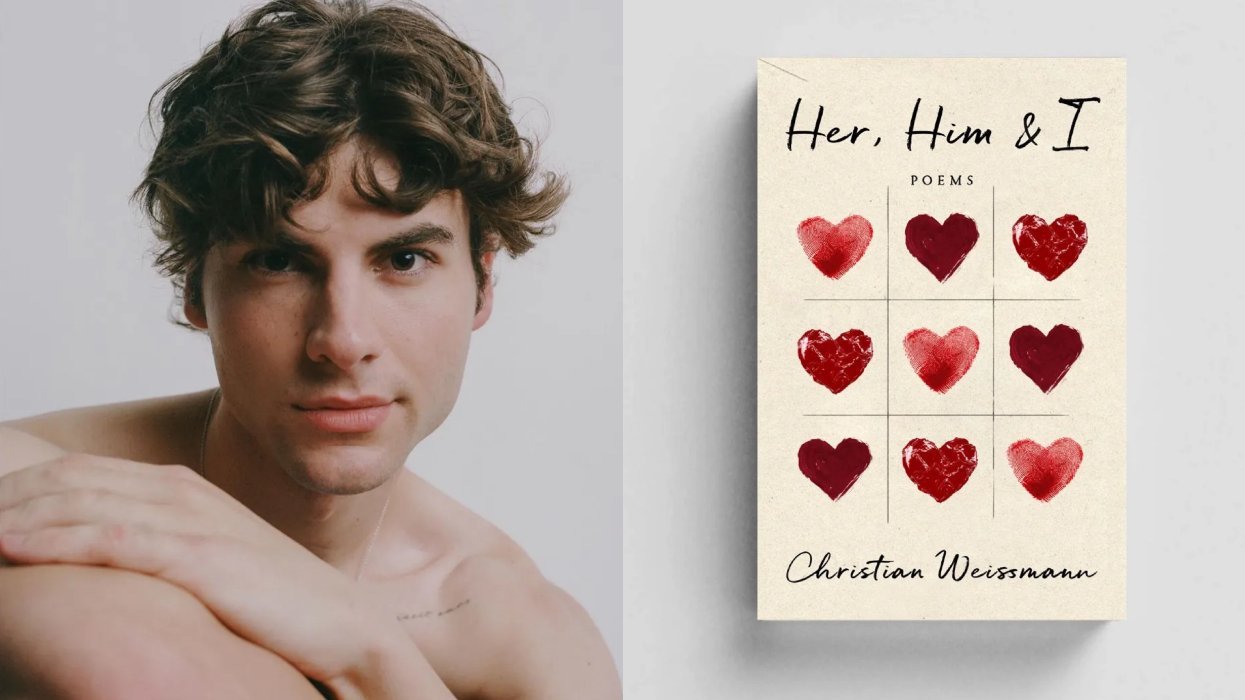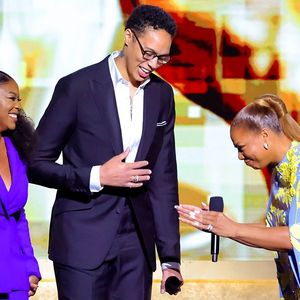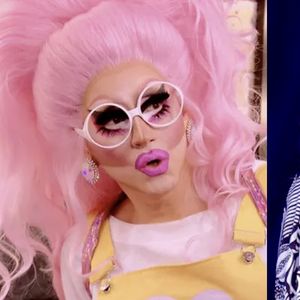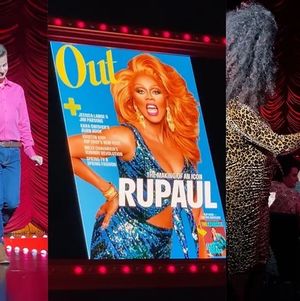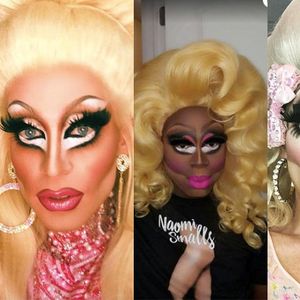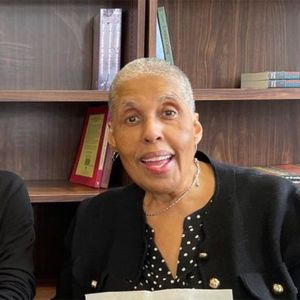One of the most important sporting events of the 20th century took place at the Astrodome in Houston, Texas, on September 20, 1973. It starred the then-closeted tennis great Billie Jean King in a match with Bobby Riggs, a retired player some 26 years her senior who was adamant he could beat any woman who stepped onto the court. "Women belong in the bedroom and kitchen, in that order," he once claimed, encapsulating the rampant misogyny of the era. (He was also a showman, and today King talks of him fondly as one of her heroes.) \
Related | Gallery: Battle of the Sexes Stars Emma Stone & Andrea Riseborough
Whether Riggs was playing it for laughs or not, the stakes were very real in 1973--the year the Supreme Court affirmed the right to an abortion in Roe v. Wade. King herself feared that using a tennis match to champion the cause of equality would turn into a circus, and only agreed to play Riggs after he trounced Margaret Court, then the women's number 1 player, 6-2, 6-1, in what was nicknamed the Mother's Day Massacre. King, who scored a major coup that year by threatening to boycott the U.S. Open over pay disparity (resulting in the tournament becoming the first to award equal prize money to men and women), felt compelled to make up for Court's dismal showing. On the day, Riggs arrived in the arena on a rickshaw pulled by five scantily clad women as an 80-piece band played "Jesus Christ Superstar." King entered, Cleopatra-style, on a gold throne borne aloft by four bare-chested men.

Riseborough: Dress by Bonnie Young, Stone: Top & pants by Tom Ford, Earrings by Jennifer Fisher
With 90 million people watching worldwide, King prevailed in three sets (6-4, 6-3, 6-3), and the match became a cornerstone of second-wave feminism, putting sports at the heart of a national conversation around gender equality. But off-court King was waging another battle, trying to balance her public persona as a happily married woman with her attraction to women. In their new movie, Battle of the Sexes (opening September 22), filmmakers Jonathan Dayton and Valerie Faris, best known for Little Miss Sunshine, use the match as a backdrop to explore King's internal conflict, portraying her relationship with her hairdresser Marilyn Barnett--later responsible for outing King in 1981--in a series of generous and tender scenes. Here, Billie Jean King talks with Emma Stone, who plays her in the film, and Andrea Riseborough, who stars as Marilyn, about turning life into art, teaching girls to be ambitious, and why the issues of 1973 are just as vital and resonant today.
Billie Jean King: I thought it was very wise to choose Val and Jonathan to direct Battle of the Sexes, because this movie is for everyone. It isn't just for women, and it isn't just for men. It shows how vulnerable people are, and how life is messy and yet joyful. Simon [Beaufoy, the writer] is the one I spent the most time with, and then Emma and I met in January last year. We went out on the court a couple of days to play. Didn't you say you gained 15 pounds and were working out like a fiend?
Emma Stone: Yeah, it was like six days a week. I was really going for it. You know, I see old pictures of you, and you're so muscular and sinewy, and I'm like, ugh. Your body was so iconic, and all I wanted was to just match that exactly. You know, my tennis double was such an imperative part of the movie--me being a novice, and Billie Jean being number 1 in the world [laughs]--so thankfully our bodies matched enough that I was like, OK, we've got a happy medium here--it's about the essence of Billie Jean and her heart and her spirit.But god, what I wouldn't give to have those same muscles. You have no idea.
BJK: Really? I'm always trying to lose weight.

Top & Pants: Tom Ford
Andrea Riseborough: Emma, we hadn't seen each other for six months or longer, and when I came to the set, I was like, Emma has eaten another person. You were ripped.
ES: Thanks, buddy. When I first met Billie Jean, the great thing was that she's such a coach and she knows sports psychology, and she instantly reduced it to playing catch. So I got to feel like a golden retriever running after a ball, and just making sure the ball was in front of my face. What was incredible, and I guess it's in every great coach or athlete, is that she found my strengths and she played to those. She found out instantly that I like to dance and I could move my feet, and that was our jumping-off point.
AR: Watching all of the women we had playing tennis in the movie was so inspiring. I think it's the only dynamic in which I would be comfortable playing a cheerleader, and Marilyn [Billie Jean King's girlfriend at the time] was in that situation. She was so invested in Billie Jean emotionally and so supportive. I have no interest in playing a heterosexual cheerleader to a wonderful football player in a movie--that's the last thing I want to do with my life--but there was a real sense of pride when we were shooting that final match. It was euphoric watching it. You got a taste of what Marilyn must have felt. It's like watching stallions moving around--so captivating.
ES: The responsibility I felt to Billie Jean is immense. She relieved me when she came to the set and said, "You're never going to disappoint me. You're never going to let me down," She could tell that I cared so much. But I also had to keep some semblance of distance, because I was watching so many tapes of her at 29 and 30 and 32, and she's so fully formed now and has the benefit of all this hindsight. She sent me some beautiful text messages about the pain she was in, or that it was messy, and I knew that was the place that I had to find for her in that period--her strength of spirit is unlike that of anyone I've ever met, but there was also this confusion and this pain and things I could really relate to. I'm lucky enough to be at that age right now, and I know all of those stirrings and those feelings in me. I can't understand being the number 1 tennis player in the world. I don't know what it's like to be a hero to millions in that way. But I do know what it's like to struggle and to be afraid and to be a public person, and to feel like you can't share all of yourself, and to be afraid of saying the wrong thing, or not furthering goodness in the world. And somehow fucking it up.
AR: It's easy to describe it as just resilience, but actually it's so much more than that. For me, the easiest part of the story was the love story because there was such ease. It was full of hope and joy. I felt like the embodiment of joy in the piece, the freedom and liberation, and that is very different for me, in my own life, to play. It felt fantastic and sensational to play someone who had such a free and captivating spirit as Marilyn. I've never cut hair, I'm not a hairdresser, I did not train six days a week to cut hair--but the part of the story of them falling in love was very pure and easy.
ES: Easy for you!
BJK: It wasn't easy for me, so Emma, that's perfect. I had a hard time watching the film, to be honest--it reconnected me to those times. Ilana [Kloss, King's partner] has watched it six times, and every time she watches it she says it's better than the last time. I think the film helped me stop for a few moments--because I'm always going through life pretty fast-- and to really appreciate what we did back then. I was listening to an interview with Roger Federer, and he said how much he loves having his balanced life, people to take care of him, his schedule. He kept talking about the ATP [Association of Tennis Professionals] tour and the majors, and I thought, That's great, Roger, but we didn't have that opportunity. We were up day and night, trying to promote, trying to organize, trying to create an infrastructure so we could have a tour. I wanted the men and women to be together [in the same association], and they didn't want us to be together. I thought that was a huge mistake, and I still think it's a huge mistake. So we had to do it ourselves, and in some ways that allowed us to have more confidence, to understand how to market ourselves better, to go out and help create an infrastructure.

Jacket & Skirt: Jean Paul Gaultier, Shoes: Stella Luna
ES: It's always going to be difficult to watch myself as you--I have a hundred ideas of things that I should have done differently--but I was so happy with the way it came together. There's such a great message about not having to do everything right. You don't have to know who you are completely in order to still effectively help change the world. I've always felt that if I get to a certain point I'm going to know all these things about myself, and then I'll be able to speak, or be of service in some way. You know, I'm afraid in a way that I don't know that Billie Jean naturally is. I'm afraid of my voice sometimes.
BJK: I'm afraid a lot. I'm scared, and I've felt lonely. When you're a leader, it's a very lonely place sometimes. Watching this movie was terrifying for me. This is a slice of 1973 and what was going on in my life and other people's lives. I just really hope it touches the hearts and minds of people and gives them a glimpse of the early '70s and the challenges, especially for the LGBTQ community. And with Margaret Court recently coming out [against lesbian players], this feels very timely. I just hope it helps somebody out there who is struggling. But most important to me, I hope this film will tell people to be their authentic selves--just find your journey,
find how to get there. It took me until I was 51, and I would love to be a lot younger and to have gotten where I needed
to go.
ES: The parallels in this movie are pretty fascinating. We began shooting in the spring of 2016, when there was still a lot of hope in the air, and it was very interesting to see this guy--this narcissistic, self-focused, constantly-stirring-the-pot kind of guy--against this incredible, qualified woman, and at the same time be playing Billie Jean, with Steve [Carell] playing Bobby Riggs. Obviously the way this has all panned out has been fascinating and horrifying, and it still feels like we're in a bad dream, but those parallels make sense to me--the equal-pay issue makes a lot of sense to me. At our best right right now we're making 80 cents to the dollar.
BJK: In Hollywood?
ES: It's a difficult system because it depends on the kinds of films you're a part of, the size of your role, how much the movies make at the box office. And so much of that changes your pay throughout your career, so I go more to the blanket issue that women, in general, are making four fifths at best.
BJK: White women. If you're African American or Hispanic it goes down, and then Asian Americans make 90 cents to the dollar.

Top & Pants: Tom Ford, Shoes: Pierre Hardy, Rings: David Yurman & Tiffany & Co.
AR: Hollywood works on quotes, so if somebody's going to pay a huge actor $52 million to be in a movie or a franchise, he's going to have a higher quote than anyone else. There are maybe one or two women that have a quote that's as high as a guy's, because most films are about white males.
ES: Very true. In my career so far, I've needed my male co-stars to take a pay cut so that I may have parity with them. And that's something they do for me because they feel it's what's right and fair. That's something that's also not discussed, necessarily--that our getting equal pay is going to require people to selflessly say, "That's what's fair." If my male co-star, who has a higher quote than me but believes we are equal, takes a pay cut so that I can match him, that changes my quote in the future and changes my life. And this is Billie Jean's feminism, and I love it--she is equality, man: equality, equality, equality.
BJK: And inclusion.
ES: It's not about, "Women are this and men are that." It is, "We are all the same, we are all equal, we all deserve the same respect and the same rights." And that's really what I've been so grateful for with male co-stars--when I've been in a similar-size role in films, and it's been multiple people who have been really incredible and said, "That's what I want to do. That's what's fair and what's right."
BJK: You just gave an example of why men are so vital to these changes--because they're usually in the power position, and if they start to change the paradigms, things start to shift. And that's why I always include men in everything that I do. I mean, I've been doing teen tennis for 42 years, it's a pro league, and we have an equal number of men and women on each team. So when a child comes out to watch, he or she is going to be socialized differently. The first generation of women that might have a chance to have equality as far as equal pay for equal work is probably those young people graduating right now from college or university, especially if they're willing to follow the money. Girls tend to do not-for-profit work. We're used to being very supportive. That's what we're taught, but women have to start stepping up. It doesn't mean you're a bad person. As long as you're a good person and you don't hurt others, ambition is really important.
AR: And being fairly compensated financially for something that you work hard at is absolutely acceptable. I don't know how many films I've been in--20, 25 films, something like that. And I've never had the experience of a guy taking any sort of pay cut. In fact, I've been number 1 in films before and been paid a lot less.
BJK: Let me ask the real important question: Did you ask for a raise?
AR: Oh, yes, I did. But there's this underlying feeling that you should be grateful.
BJK: Oh, yeah, we're supposed to be happy with the crumbs. I talk about that in my speeches--that women deserve the cake, the icing, and the cherry on top as well, just like the men. So let's go for it. But you also have to ask for what you want and need even if you get turned down. You have to figure out a way to ask.
AR: I did it six weeks ago, to no avail. You know, so many times, so many times. It's difficult.
BJK: Was it in England or the States?
AR: It's everywhere, but much, much worse in the States.
BJK: Worse in the States?

Dress: Valentino, Shoes: Sergio Rossi
AR: Much, much worse, yeah. I'm sure there are a lot of people who think I'm a pain in the ass most of the time, but it gets very tiring. It's tiring to speak up, to get up every day and to have that very specific experience of being patronized in a taxi cab, you know, or whatever the fuck it is, as a woman.
BJK: You're right. I've always felt like I've been on a tightrope. My whole life. And Emma just expressed a lot of the feelings that women have dealt with forever. I never want to network by gender, but my whole life has been watching men sticking up for each other and helping each other out, and women haven't been socialized the same way. That's why I like women to play sports. I don't care if they're any good, but at least they've learned the culture of men and how to help navigate through those difficult situations sometimes.
AR: I wish you were my sports teacher growing up, Billie Jean. Bloody hell.
BJK: I was actually outed in '81, so it was later [than the Battle of the Sexes], but it was devastating. I had to start my life over. I lost endorsements. I lost everything, basically, overnight. You can't believe the letters I got, how horrible they were. I should've kept them. I just couldn't even stand looking at them. Sports are going to be the last bastion, especially in the men's game. It's got to be someone of really high stature, really up there. Andy Murray is such a feminist. I just love that guy. He's the greatest.
AR: I think we have to be real about the fact that we're in 2017 and everyone's so excited that we put out a superhero movie starring a woman.
BJK: I know, it's like, really?
AR: Sometimes I feel like we have a long way to go. Women are seriously, highly sexualized. Just look at the Baywatch posters. It's disgusting and degrading, and it's pulling female emancipation kicking and screaming back 500 years. It is so important to think about what happened before, and there was a lot of strength before. Cleopatra was quite a long time ago, but Hillary didn't get in. There's a journey here, and it's about, as Billie says, uniting.
ES: Billie was describing her generation as the transition generation and the shoulders she stood on. What a beautiful thing: to connect younger people to something their parents or grandparents watched and were inspired by. My mom watched Billie's match with Bobby and got to talk to me about it.
BJK: Your mom watched it? I didn't know that.
ES: Everybody watched it, are you kidding?
AR: I didn't grow up knowing about the Battle of the Sexes, or Billie Jean King--I was born after the events--but there are so many really important moments in terms of paving the way for legislation for equal pay that are overlooked, and this is one of them.
ES: That's what Billie Jean has always fought for. She's never wavered on it, and it's so beautiful to tie generations together in that way through this story. It's just a real gift to be a part of it, and I'm so grateful to put a story like that out into the world.
Photography: Kai Z Feng
Styling for Stone: Petra Flannery
Styling for Riseborough: Maryam Malakpour
Hair for Stone: Mara Roszak at Starworks
Makeup for Stone: Mai Quynh at Starworks
Manicure for Emma: Emi Kudo at Opus Beauty
Hair for Riseborough: John D. at Forward
Makeup for Riseborough: Torsten Witte
Manicure for Riseborough: Alex Jachno at Aim Artists
Production: Glam PR
Art Direction: Grant Woolhead
